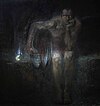
Sheba is an ancient kingdom mentioned in the Hebrew Bible and the Quran. It particularly features in the tradition of Orthodox Tewahedo in today's Ethiopia and is also asserted as the home of the Queen of Sheba, who is left unnamed in Jewish texts, but is known as Makeda in Ethiopian texts and as Bilqīs in Arabic texts. According to the Jewish historian Josephus, Sheba was the home of Princess Tharbis, who is said to have been the wife of Moses before he married Zipporah.

In Islam, Jesus is believed to be the penultimate prophet and messenger of God and the Messiah sent to guide the Children of Israel with a book called the Injīl.

Noah, also known as Nuh, is recognized in Islam as a prophet and messenger of God. He is one of the Ulu'l azm prophets. Noah's mission was to warn his people, who were plunged in idol worshipping. God charged Noah with the duty of preaching to his people, advising them to abandon idolatry and to worship only God and to live good and pure lives. Although he preached the Message of God with zeal, his people refused to mend their ways, leading to building the Ark and the Deluge, the Great Flood. In Islamic tradition, it is disputed whether the Great Flood was a global or a local one. Noah's preaching and prophethood spanned 950 years according to the Quran, Ahadith and Tafsir.
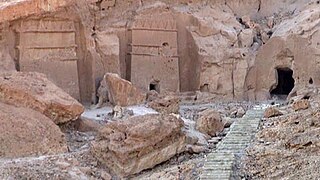
Shuaib, Shoaib, Shuayb or Shuʿayb is an ancient Midianite Nabi (Prophet) in Islam, and the most revered prophet in the Druze faith. Shuayb is traditionally identified with the biblical Jethro, Moses' father-in-law. Shuaib is mentioned in the Quran a total of 11 times. He is believed to have lived after Ibrahim (Abraham), and Muslims believe that he was sent as a prophet to a community: the Midianites, who are also known as the Aṣḥāb al-Aykah, since they used to worship a large tree. To the people, Shuaib proclaimed the straight path and warned the people to end their fraudulent ways. When the community did not repent, Allāh (God) destroyed the community.
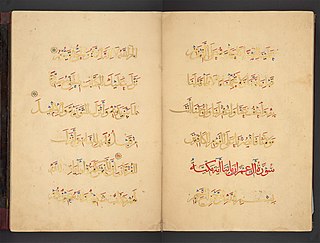
Al Imran is the third chapter (sūrah) of the Quran with two hundred verses (āyāt).
The mysterious letters are combinations of between one and five Arabic letters that appear at the beginning of 29 out of the 114 chapters (surahs) of the Quran just after the Bismillāh Islamic phrase. The letters are also known as fawātiḥ (فَوَاتِح) or "openers" as they form the opening verse of their respective surahs.

Maryam is the 19th chapter (sūrah) of the Qur'an with 98 verses (āyāt). The 114 chapters in the Quran are roughly ordered by size. The Quranic chapter is named after Mary, mother of Jesus (Isa), and the Virgin Mary in Christian belief. It recounts the events leading up to the birth of Jesus, subject matter covered in Luke 1 of the Christian Bible. The text of the surah refers to many known prophetic figures, including Isaac, Jacob, Moses, Aaron, Ishmael, Idris, Adam, Zechariah and Noah.

Asiya wife of Pharaoh of Exodus written in Arabic as Ãsiyah, was, according to the Qur'an and Islamic tradition, the wife of the Pharaoh of the Exodus,

Maryam bint Imran is revered in Islam. The Qur'an refers to her seventy times and explicitly identifies her as the greatest woman to have ever lived. In the Quran, her story is related in three Meccan surahs and four Medinan surahs. The nineteenth Surah, Maryam, is named after her. Moreover, she is the only woman named in the Quran. The Quran refers to her more often than the Bible.
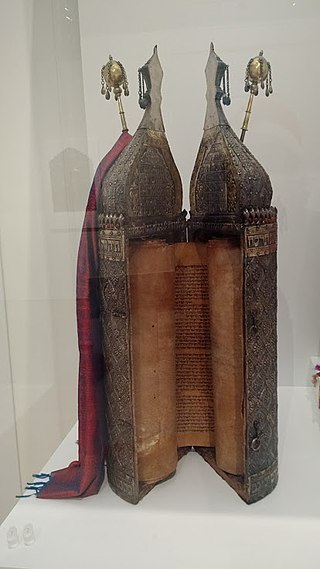
The Tawrat, also romanized as Tawrah or Taurat, is the Arabic-language name for the Torah within its context as an Islamic holy book believed by Muslims to have been given by God to the prophets and messengers amongst the Children of Israel. In the Qur'an, the word 'Tawrat' occurs eighteen times. When referring to traditions from the Tawrat, Muslims have not only identified it with the Pentateuch, but also with the other books of the Hebrew Bible as well as with Talmudic and Midrashim writings.
Indeed, We sent down the Torah, in which was guidance and light. The prophets who submitted [to God] judged by it for the Jews, as did the rabbis and scholars by that with which they were entrusted of the Scripture of God, and they were witnesses thereto. So do not fear the people but fear Me, and do not exchange My verses for a small price [i.e., worldly gain]. And whoever does not judge by what God has revealed - then it is those who are the disbelievers.

Mount Judi is Noah's apobaterion or "Place of Descent", the location where the Ark came to rest after the Great Flood, according to very early Christian and Islamic tradition. The Quranic tradition is similar to the Judeo-Christian legend. The identification of Mount Judi as the landing site of the ark persisted in Syriac and Armenian tradition throughout Late Antiquity, but was abandoned for the tradition equating the biblical location with the highest mountain in Turkey, that is Mount Ararat.
Women in the Quran are important characters and subjects of discussion included in the stories and morals taught in Islam. Most of the women in the Quran are represented as either mothers or wives of leaders or prophets. They retained a certain amount of autonomy from men in some respects; for example, the Quran describes women who converted to Islam before their husbands or women who took an independent oath of allegiance to Muhammad.
Dawud, in Islam is considered a prophet and messenger of God (Allah), as well as a righteous, divinely-anointed monarch of the United Kingdom of Israel. Additionally, Muslims also honor David for having received the divine revelation of the Zabur (Psalms). Dawud is considered one of the most important people in Islam. Mentioned sixteen times in the Quran, David appears in the Islamic scripture as a link in the chain of prophets who preceded Muhammad. Although he is not usually considered one of the "law-giving" prophets, "he is far from a marginal figure" in Islamic thought. In later Islamic traditions, he is praised for his rigor in prayer and fasting. He is also presented as the prototypical just ruler and as a symbol of God's authority on earth, having been at once a king and a prophet.
The Quran contains references to more than fifty people and events also found in the Bible. While the stories told in each book are generally comparable, there are also some notable differences. Knowing that versions written in the Hebrew Bible and the Christian New Testament does predate the Quran, scholars recognize the similarities found in Islamic, Jewish and Christian texts. Muslims believe the Quran to be direct knowledge from the Creator of existence. As such, some Muslims believe that the earlier versions are distorted through flawed processes of transmission and interpretation over time, and consider the Quran's version to be more accurate.
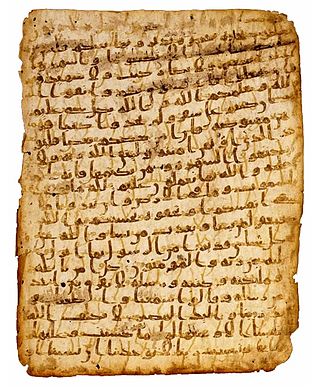
Islamic holy books are certain religious scriptures that are viewed by Muslims as having valid divine significance, in that they were authored by God (Allah) through a variety of prophets and messengers, including those who predate the Quran. Among the group of religious texts considered to be valid revelations, the three that are mentioned by name in the Quran are the Tawrat, received by prophets and messengers amongst the Children of Israel; the Zabur (Psalms), received by David; and the Gospel, received by Jesus. Additionally, the Quran mentions God's revealing of the Scrolls of Abraham and the Scrolls of Moses.

Idris is an ancient prophet mentioned in the Quran, who Muslims believe was the third prophet after Seth. He is the second prophet mentioned in the Quran. Islamic tradition has unanimously identified Idris with the biblical Enoch, although many Muslim scholars of the classical and medieval periods also held that Idris and Hermes Trismegistus were the same person.
Among the books considered to be revealed by God in the Quran, the three mentioned by name are the Tawrat, the Arabic-language name for the Torah within its context as an Islamic holy book believed by Muslims to have been given by God to the prophets and messengers amongst the Children of Israel; the Zabur (Psalms) revealed to Dawud (David); and the Injil (Gospel) revealed to Isa (Jesus). The Quran mentions the Torah, Psalms, and Gospel as being revealed by God in the same way the Quran was revealed to Muhammad, the final prophet and messenger of God according to Muslims.
Prophets in Islam are individuals in Islam who are believed to spread God's message on Earth and to serve as models of ideal human behaviour. Some prophets are categorized as messengers, those who transmit divine revelation, most of them through the interaction of an angel. Muslims believe that many prophets existed, including many not mentioned in the Quran. The Quran states: "And for every community there is a messenger." Belief in the Islamic prophets is one of the six articles of the Islamic faith.
In Islam, Hārūn ibn ʿImrān, the Biblical Aaron, is a prophet and messenger of God, and the older brother of the prophet Mūsā (Moses). He along with his brother (Moses) preached the Israelites to the Exodus.
































